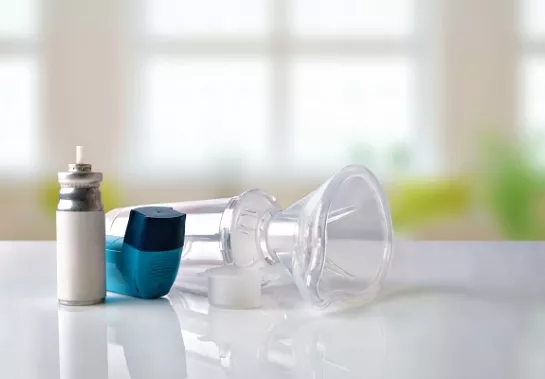Asthma Medication Use and Exacerbations

Boston, MA— How does the switch to a high-deductible health plan affect children with asthma? A new study led by researchers at the Harvard Pilgrim Health Care Institute suggests that enrollment in a high-deductible health plan (HDHP) may not be associated with changes in asthma medication use or asthma exacerbations when medications are exempt from the deductible. The findings were published in JAMA Pediatrics on May 10.

To treat asthma, clinical guidelines recommend the use of controller medications, but adherence to these medications is generally suboptimal, putting those affected at risk for asthma exacerbations. High out-of-pocket costs have been associated with decreased controller medication use and adverse asthma outcomes for children and adults. While most evidence about HDHPs has come from studies focused on adult populations, the study team, led by Alison Galbraith, MD, MPH, lead author and Associate Professor in the Department of Population Medicine at Harvard Medical School, examined how enrollment in HDHPs may affect asthma controller medication use and exacerbation in children.
“One challenge of insurance design is balancing affordable coverage with access to necessary care for chronic conditions for both children and adults,” said Dr. Galbraith.“Our findings highlight the potential protective effect of exempting asthma medications from the deductible in high-deductible health plans.”
The study population, drawn from a large, national, commercial database, included children (ages 4 to 17) and adults (ages 18-64) years with persistent asthma who switched from traditional plans to HDHPs during a 24-month period. Compared to those who remained in traditional plans, children switching to HDHPs experienced small decreases in annual 30-day fills for inhaled corticosteroid-long-acting beta agonist medications but not for other controller medications. Adults switching to HDHPs did not have significant reductions in 30-day fills for any controller medications. There were no statistically significant differences in medication adherence, oral steroid bursts, or asthma-related ED visits for children or adults.
Alison Galbraith, MD, MPH
Regarding possible next steps, Dr. Galbraith adds, “Asthma is a major cause of preventable disease burden for both children and adults. Policy makers should consider adopting value-based designs and other policies exempting important medications for asthma and other chronic conditions—which might prevent adverse clinical outcomes—from the deductible.”
About Harvard Pilgrim Health Care Institute's Department of Population Medicine
The Harvard Pilgrim Health Care Institute's Department of Population Medicine is a unique collaboration between Harvard Pilgrim Health Care and Harvard Medical School. Created in 1992, it is the first appointing medical school department in the United States based in a health plan. The Institute focuses on improving health care delivery and population health through innovative research and teaching.
Controller Medication Use and Exacerbations for Children and Adults With Asthma in High-Deductible Health Plans. Alison Galbraith, Dennis Ross-Degnan, Fang Zhang, Ann Chen Wu, Anna Sinaiko, Alon Peltz, Xin Xu, Jamie Wallace, J. Frank Wharam. Online May 10, 2021.
For questions about the study or to schedule an interview with the author, contact Maya Dutta-Linn.